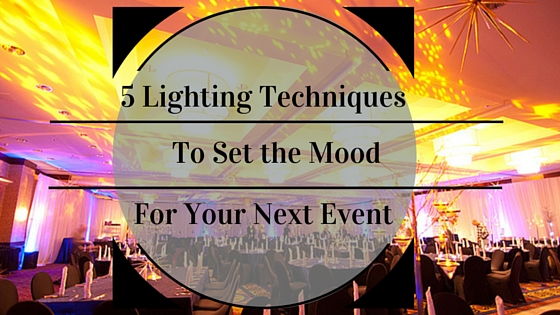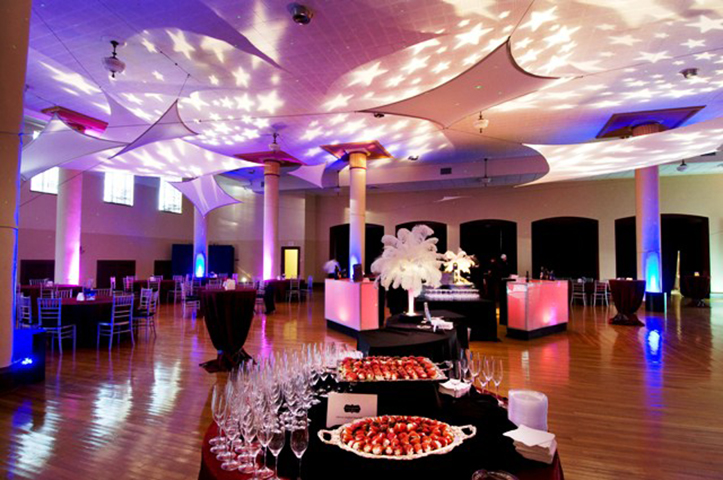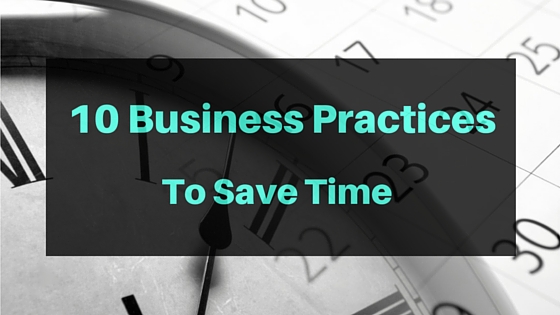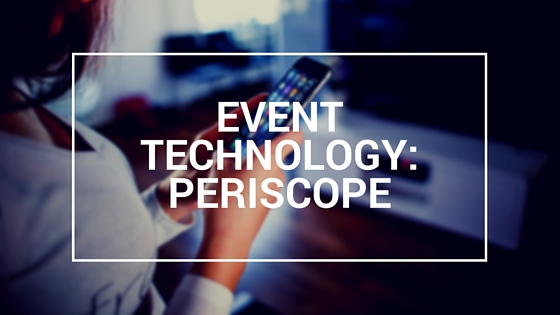Here are 10 good business practices I’ve learned over the years of owning and operating a business. These little tidbits have helped with my company exposure and name recognition, and took my business from six figures to over seven figures. Small things can make a big difference in your business, especially if you are working from home. Make sure you keep your mind sharp and your face out there for your vendors and clients to remember you.
1) Be a partner to your clients
Your client hired you to help with a project, idea or specific task. Your job is to make them look good to someone that is important to them whether it be a boss, colleagues or their clients. Make sure you consider yourself a part of their team to succeed. Being a valuable team member makes it less likely you will be replaced.
2) Keep up with fresh ideas and the newest technology
You’re the expert in your field; your clients look to you for fresh ideas and what is happening in that field that they don’t have time to track. Knowing what’s new and cutting edge will keep you on their minds when they need innovative ideas and a new approach for their problems or opportunities. Being well versed has led me to many upsell situations, and can happen to you as well.
3) Read and absorb industry material
What magazines, blogs, newsletters etc. are you reading? Are you checking in on your competitors? What are they offering that you aren’t? Are they contributing to the industry news? In this day of easy access to new and exciting information in your industry, you want to make sure you can introduce your clients to new and exciting offerings that fit their needs. They are hiring you for your ideas and inspirations. Make sure you have something to offer.
4) Document ideas that fit your clients’ needs as you come across them
You’re out and about, talking to people and learning what others have done in the industry. If you’re attending tradeshows, networking with other professionals in your line of work or attending conventions, you will probably run across information that you think would be great to pass on to your clients. Make a note in your computer so that you have that information next time you have the opportunity to chat with your client. This will give you information to share as well as a great way to get in front of your client to sign the next contract.
Networking for Your Business
5) Communicate with past and present clients to stay on top of their mind
Once I got an event from a client just because he had a need and his previous provider didn’t stay in touch. OUCH! – this left an opening that I was able to walk in and close. Make sure you are reaching out to your clients every now and then, this way your name isn’t forgotten and your card isn’t lost in a sea of other similar businesses, but rather stays at the top of the pile.
6) Become friends with your clients
I had a client for several years and I knew little about her story but was careful not to share my own. One day we both happened to be sitting together watching our daughters play volleyball and got into a conversation that we both connected on. This made the sales process, meetings and events so much easier. We now had connecting points and shared experiences on a personal level, not just business. Be careful that you remain positive when visiting with your clients. Don’t slip into nagging, complaining or talking about other clients in a negative way. This will have the exact opposite effect you were going for.
7) Hire experts in areas you don’t excel in
The age-old difficulty for the business owner… letting go! – don’t’ worry you are not alone but the quicker you learn to let go of tasks that someone else can fulfill for you, the faster you will grow. Take me for example; taking six hours out of my week to mow the lawn just doesn’t seem financially sound. Consider this…what is hourly rate? Can you hire someone to do it for less than what it would ‘cost’ you?
If you don’t enjoy it, don’t have the best equipment, or get frustrated and pull away from where you make your money to handle a task, delegate it out! When I finally learned this lesson (one I heard over and over throughout the years) my business doubled! Know your strengths and weaknesses, play to your strengths and hire to fulfill your weaknesses. This saves you time and frustration.
Finding the Perfect Vendors for Your Corporate Event
8) Become an information resource
Do you have one person you can call when you just can’t find what you’re looking for? That one person who knows where to find the impossible? Be that person for your clients and vendors. You know you have the connections and it really doesn’t take much time, but knowing where to find the unusual, who can make it and how to make it has been a wonderful way to keep my name and number handy for my clients and vendors.
I had an experience where the meeting planner requested something from the hotel and the hotel event manager agreed to provide, but then didn’t know how to provide what they had agreed to…they called me and I ended up with a very good client for 10 years. And the hotel looked like a genius for being able to provide the request.
9) Surround yourself with like-minded people
One of my favorite groups I belong to is a group called South Side Masterminds. It’s a group of entrepreneurs from different industries that get together once a month and discuss business challenges, ideas and solutions. We are a very small and closed group, we laugh throughout the whole meeting, and the ideas and businesses that have come out of this group have been amazing. I highly suggest you find your own think tank to get involved with. This keeps you active in the community (especially if you are a solopreneur!) and exposes you to new ideas and thought processes.
10) Contribute to the community
Online or in your neighborhood, being involved in your community is a great way of sharing your passion, giving back and getting to know others. It’s not all about gaining new clients or finding your next big event, but on occasion it might lead to that. For me, I have always enjoyed helping others achieve their goals and putting their best foot forward for their clients, donors, etc. It feels good to help create an event that everyone benefits from.
I pick two or three events a year to donate my time and resources to, and do my best to make sure their event goes off without a hitch. I have a few very cool events that I have had the opportunity to have an impact on, and there is nothing more rewarding. The relationships I’ve built through these organizations have been priceless!
These are a few of the very important tips we as entrepreneurs need to keep on top of our minds each and every day to make sure our business, and you, stay in the limelight. Remember the roofing guy you met at the 4th of July party? Probably not, because he didn’t connect with you following that one-time meeting, so you probably won’t think of his name next time someone is mentioning how they need their roof redone.
We are all human and each busy in our lives, if our face isn’t seen to those that can recommend us, than we are losing out on business connections that would come our way. They say the best opportunity to sell is when someone else has recommended you. Get out there and be seen!
Tracy Fuller-White has owned and operated an event production company for 30+ years and has done events nationally and internationally for fortune 100 and fortune 500 companies.
 When it comes to charity events are you doing the same old thing as everyone else?In this day and age, we find that the charities are hitting up the same people over and over to donate to causes. In our midsized community we need to look for something new and refreshing to keep the donors looking to our client organizations year after year.Here are 5 fresh ideas for your next charity events: 1. Get rid of the Live auction:Beyond having to beg for those items that are worthy of high dollar bids, your bidders have the opportunity and funds to purchase these items on their own. So why continue with the painful asking, gathers and bidding for a live auction. Change it up! Try a 50/50 auction instead. One chance for one price, pair this with the one of the other items below and your event will be the hit of the town! 2. Choose a common household product to create a fashion show:Here in our community, one of the best fundraisers in town is the Bubble Ball. A fashion show where the fashion is made of Bubble Wrap. Local artist and celebrities are asked to create their fashions sticking with the theme of the show. Music is set to the parade of unbelievable, unique and outrageous fashions with the main component being Bubble Wrap. Other items that would lend themselves to fashion shows might be duct tape, rubber bands, and recycled plastic. 3. Create a game show fund raiser:A client came to us to change their yearly gala to something else. After many hours of brainstorming, we changed their event to a game show gala. With a Family Feud atmosphere and the right family members, we have taken this event and quadrupled the money collected. Not only has this event become a great yearly event that raises 4x the amount it used to, but the attendance has risen as well! Everyone is excited to see the ‘families’ play and the show is short and sweet. No long lectures, no long auctions and it is easy for attendees to give. 4. Scavenger hunt – pay to play:Connect with local artists for the donating of a painting. Offer tickets for clues of where the artwork is hidden in the city. Create small teams or pairs to scour the city, collecting queues and ultimately finding the artwork! Make sure you have a camera set up to capture the expressions of the winners. 5. Race around the City:In the spirit of The Amazing Race, have teams pair off and run thru the community going into different businesses for an activity. Make money by charging an entrance fee and by gathering pledges that each team gathers (like the old fashion walk-a-thons). Make sure you reward the teams at the end with a party and winner recognition!Use these ideas to change up your charity event this season. The donors already know it’s a good cause – but it’s up to you to plan the spectacular party!
When it comes to charity events are you doing the same old thing as everyone else?In this day and age, we find that the charities are hitting up the same people over and over to donate to causes. In our midsized community we need to look for something new and refreshing to keep the donors looking to our client organizations year after year.Here are 5 fresh ideas for your next charity events: 1. Get rid of the Live auction:Beyond having to beg for those items that are worthy of high dollar bids, your bidders have the opportunity and funds to purchase these items on their own. So why continue with the painful asking, gathers and bidding for a live auction. Change it up! Try a 50/50 auction instead. One chance for one price, pair this with the one of the other items below and your event will be the hit of the town! 2. Choose a common household product to create a fashion show:Here in our community, one of the best fundraisers in town is the Bubble Ball. A fashion show where the fashion is made of Bubble Wrap. Local artist and celebrities are asked to create their fashions sticking with the theme of the show. Music is set to the parade of unbelievable, unique and outrageous fashions with the main component being Bubble Wrap. Other items that would lend themselves to fashion shows might be duct tape, rubber bands, and recycled plastic. 3. Create a game show fund raiser:A client came to us to change their yearly gala to something else. After many hours of brainstorming, we changed their event to a game show gala. With a Family Feud atmosphere and the right family members, we have taken this event and quadrupled the money collected. Not only has this event become a great yearly event that raises 4x the amount it used to, but the attendance has risen as well! Everyone is excited to see the ‘families’ play and the show is short and sweet. No long lectures, no long auctions and it is easy for attendees to give. 4. Scavenger hunt – pay to play:Connect with local artists for the donating of a painting. Offer tickets for clues of where the artwork is hidden in the city. Create small teams or pairs to scour the city, collecting queues and ultimately finding the artwork! Make sure you have a camera set up to capture the expressions of the winners. 5. Race around the City:In the spirit of The Amazing Race, have teams pair off and run thru the community going into different businesses for an activity. Make money by charging an entrance fee and by gathering pledges that each team gathers (like the old fashion walk-a-thons). Make sure you reward the teams at the end with a party and winner recognition!Use these ideas to change up your charity event this season. The donors already know it’s a good cause – but it’s up to you to plan the spectacular party!

 Lighting is one of the best elements to set the mood for your event. By changing the lighting in the room and taking out the florescent lights, you create the color, mood, and direct the audience’s attention to where you want.Here are 5 techniques to set the mood with lighting:1) Use uplighting around the roomRemoving the florescent lighting in the room and replacing it with uplights around the wall or on the architectural elements in the room will create a dramatic and more creative look.Imagine walking into a room washed in blue up-lights with your winter event, or a room glowing with red up-lighting with your Fire and Ice event. What if you changed the up-lighting on the walls depending on the timing of the programing? Say your event is Fire and Ice and you start with red lighting and move it to blue during the evening to signify the change from Fire to Ice. You will want to play with the colors and your theme to see what works best.2). Use a Gobo for added decorA gobo is a piece of metal that fits into a lighting instrument that has a negative cut of a logo or names. They also come in color and made of glass for more intricate designs or multicolor logos.For large walls or lighting on the dance floor these make a wonderful impact and can help your theming or your branding of the event3). Use a projector for lightingProjectors are now being used for lighting and at times might be more economical than lighting. This is also a wonderful way to create a look of moving objects or changing looks on a large wall.Imagine covering a large ugly wall with moving snowflakes for a holiday show. This will save the cost of the drapery and labor to put it up.4). Set the stage with lightingUse lighting to direct your audiences’ attention to different areas in the room. Say you have a large new product you want to reveal and you have it hidden behind drapery until the big reveal. When the timing is right, the stage goes dark and the lighting all moves to direct everyone’s attention to the new product and the drape drops. This is a jaw dropping moment at events.You will also want to use lighting on stage to highlight your speakers, especially if you are videotaping.5). Pin spot lighting for your centerpiecesYou’ve spent lots of time and money on those amazing centerpieces and you’ve removed all the overhead lighting and replaced it with up lighting around the room. You don’t want to loss the drama of the centerpieces when people enter the room or when they are at the tables for dinner.Adding pin lighting, either from the ceiling and lighting each table centerpiece or lighting the centerpiece from below, will certainly add the element of drama you are looking for.
Lighting is one of the best elements to set the mood for your event. By changing the lighting in the room and taking out the florescent lights, you create the color, mood, and direct the audience’s attention to where you want.Here are 5 techniques to set the mood with lighting:1) Use uplighting around the roomRemoving the florescent lighting in the room and replacing it with uplights around the wall or on the architectural elements in the room will create a dramatic and more creative look.Imagine walking into a room washed in blue up-lights with your winter event, or a room glowing with red up-lighting with your Fire and Ice event. What if you changed the up-lighting on the walls depending on the timing of the programing? Say your event is Fire and Ice and you start with red lighting and move it to blue during the evening to signify the change from Fire to Ice. You will want to play with the colors and your theme to see what works best.2). Use a Gobo for added decorA gobo is a piece of metal that fits into a lighting instrument that has a negative cut of a logo or names. They also come in color and made of glass for more intricate designs or multicolor logos.For large walls or lighting on the dance floor these make a wonderful impact and can help your theming or your branding of the event3). Use a projector for lightingProjectors are now being used for lighting and at times might be more economical than lighting. This is also a wonderful way to create a look of moving objects or changing looks on a large wall.Imagine covering a large ugly wall with moving snowflakes for a holiday show. This will save the cost of the drapery and labor to put it up.4). Set the stage with lightingUse lighting to direct your audiences’ attention to different areas in the room. Say you have a large new product you want to reveal and you have it hidden behind drapery until the big reveal. When the timing is right, the stage goes dark and the lighting all moves to direct everyone’s attention to the new product and the drape drops. This is a jaw dropping moment at events.You will also want to use lighting on stage to highlight your speakers, especially if you are videotaping.5). Pin spot lighting for your centerpiecesYou’ve spent lots of time and money on those amazing centerpieces and you’ve removed all the overhead lighting and replaced it with up lighting around the room. You don’t want to loss the drama of the centerpieces when people enter the room or when they are at the tables for dinner.Adding pin lighting, either from the ceiling and lighting each table centerpiece or lighting the centerpiece from below, will certainly add the element of drama you are looking for. Lighting can drastically change the mood of your event, nothing is worse than a space with fluorescent lighting that flatters no one. Be creative with your light, and change the way the room feels.
Lighting can drastically change the mood of your event, nothing is worse than a space with fluorescent lighting that flatters no one. Be creative with your light, and change the way the room feels.  We get it, you’re busy, your time is important and you have a lot of things to check off your to-do list. Being in the event industry is non-stop, you can’t remember the last time you had a free weekend, and time = money! Luckily we have put together a list of ten business practices to save time.1) Schedule in advanceYour calendar is your best friend. Write down your deadlines and event dates so you know what your month looks like at a glance. This way if you get a call out of the blue for a quick job, you know if you are available or not.2) Be organizedNothing is more distracting than a messy work-space; make sure you tidy up your area every now and then. Have your contact information in a specific area, so when you need to make a call you know exactly where to go.3) Save your files!Being organized in your physical space is just as important as being organized in your cyber space. Working in events you are going to have endless documents and images that you need to be able to find instantly. Have detailed files where you save everything, that way when a client wants a copy of their event images, you know where to go! Don’t forget to back up your work; computers crash and you can’t afford to lose everything.4) Meet your clients virtuallyAttending meetings is essential for every business; it’s how you expand, but they also take a lot of time. Consider a meeting on Skype or GoToMeeting. Make sure you are still professional and watch your background space, but you are still getting face-to-face time in the comfort of your own office.5) Manage social media betterIn this day and age, social media presence is essential to your business. Don’t waste your time posting every single post by hand. We prefer HootSuite or Buffer to schedule social media posts in advance! It’s super convenient and allows you to post your content days or weeks in advance.6) Delegate!This might be hard for some, especially small business owners, but once you get more exposure, the more work there is. You cannot do everything by yourself so hire someone to help you! Find someone that is passionate about your business and will help you succeed.7) Know what’s importantThere will always be things that fall on the same deadline; you have to learn how to prioritize them. Take charge on what is the most important and (delegate!) those that others can complete.8) Have an end timeBeing an Event Planner, you may have crazy hours. Take advantage of your office days. There is always going to be more stuff to do, learn to end the day at a reasonable time. Enjoy the days where you aren’t running around at an event, take a class or spend time with friends and family.9) Turn your attention to one thing at a timeThis may sound insanely hard to do, but hear me out. Focus your time on one thing; whether that is a client, a task or an employee, they deserve your undivided attention. Event planning is a juggling act, keeping everything balanced is tough. Focus on the task at hand. An email or text can wait for you to finish up.10) Schedule breaksThings get hectic and you get stressed, and it may seem like the best idea to power through the day. Take a break when things get tough, clear your mind and come back to the task at hand refreshed. It will amaze you what a walk outside or a tasty treat can do for you!Whether you just started your business or you have been doing it for thirty years, you know how important time is. There never seems like there are enough hours in the day. Follow these 10 practices to save time in your business so you can succeed!
We get it, you’re busy, your time is important and you have a lot of things to check off your to-do list. Being in the event industry is non-stop, you can’t remember the last time you had a free weekend, and time = money! Luckily we have put together a list of ten business practices to save time.1) Schedule in advanceYour calendar is your best friend. Write down your deadlines and event dates so you know what your month looks like at a glance. This way if you get a call out of the blue for a quick job, you know if you are available or not.2) Be organizedNothing is more distracting than a messy work-space; make sure you tidy up your area every now and then. Have your contact information in a specific area, so when you need to make a call you know exactly where to go.3) Save your files!Being organized in your physical space is just as important as being organized in your cyber space. Working in events you are going to have endless documents and images that you need to be able to find instantly. Have detailed files where you save everything, that way when a client wants a copy of their event images, you know where to go! Don’t forget to back up your work; computers crash and you can’t afford to lose everything.4) Meet your clients virtuallyAttending meetings is essential for every business; it’s how you expand, but they also take a lot of time. Consider a meeting on Skype or GoToMeeting. Make sure you are still professional and watch your background space, but you are still getting face-to-face time in the comfort of your own office.5) Manage social media betterIn this day and age, social media presence is essential to your business. Don’t waste your time posting every single post by hand. We prefer HootSuite or Buffer to schedule social media posts in advance! It’s super convenient and allows you to post your content days or weeks in advance.6) Delegate!This might be hard for some, especially small business owners, but once you get more exposure, the more work there is. You cannot do everything by yourself so hire someone to help you! Find someone that is passionate about your business and will help you succeed.7) Know what’s importantThere will always be things that fall on the same deadline; you have to learn how to prioritize them. Take charge on what is the most important and (delegate!) those that others can complete.8) Have an end timeBeing an Event Planner, you may have crazy hours. Take advantage of your office days. There is always going to be more stuff to do, learn to end the day at a reasonable time. Enjoy the days where you aren’t running around at an event, take a class or spend time with friends and family.9) Turn your attention to one thing at a timeThis may sound insanely hard to do, but hear me out. Focus your time on one thing; whether that is a client, a task or an employee, they deserve your undivided attention. Event planning is a juggling act, keeping everything balanced is tough. Focus on the task at hand. An email or text can wait for you to finish up.10) Schedule breaksThings get hectic and you get stressed, and it may seem like the best idea to power through the day. Take a break when things get tough, clear your mind and come back to the task at hand refreshed. It will amaze you what a walk outside or a tasty treat can do for you!Whether you just started your business or you have been doing it for thirty years, you know how important time is. There never seems like there are enough hours in the day. Follow these 10 practices to save time in your business so you can succeed!  Don’t have any local news programs interested in covering your next event? No need for them now, because with the newest event technology, Periscope, you have your own personal TV channel. This is a live streaming app that broadcasts your video directly to your viewers. This app is fast and easy, there is no time spent editing, simply stream your events or exclusive interviews to your viewers and, BAM!, done. This is a new way to connect to your audience in an authentic way; check out some of Periscope’s perks!Social mediaYour next question may be “How will people find me on Periscope since it’s so new?” Twitter is the owner of this new technology phenomenon, so once your broadcast is out a link is sent to your timeline! Hype up your event on social media beforehand, this way your followers have something to look forward to. Much like a live broadcast your followers can ask questions or tell you what they think about your topic/event. This is great since they can be part of the conversation and can engage in your event more than ever!AccountMake sure your Periscope account is unique and searchable; for event planners let your followers know what you plan post, use key words and be sure they understand it is about event tips or showcasing the end result of your amazing event! The best part is how shareable it is, no need for any hassle.Behind the scenes contentEvents can get crazy (we know!) but use that to your advantage; broadcast behind the scenes shots. Sometimes things go wrong and you need to think of a creative way to fix it; showcase that and viewers can awe in amazement by your super powers! Photos are great, but go to the next level by sharing a 360-degree view of your event space, giving viewers more insight into your event with Periscope.Lights, camera, action!Before you start streaming there are a few things to think about ahead of time. Be careful about shaky cameras. Your video is live and you want it to look presentable. Also remember to go over your talking points before the camera is rolling. Most importantly: Be YOU! This is about showcasing your event and having your personality shine. Remember to let those you are interviewing know that they have one take. It may be intimidating for some, but you get more authentic results in the end.Use Periscope to your advantage, give your audience something they didn’t even think they needed! Still want more information? Check out another great blog,
Don’t have any local news programs interested in covering your next event? No need for them now, because with the newest event technology, Periscope, you have your own personal TV channel. This is a live streaming app that broadcasts your video directly to your viewers. This app is fast and easy, there is no time spent editing, simply stream your events or exclusive interviews to your viewers and, BAM!, done. This is a new way to connect to your audience in an authentic way; check out some of Periscope’s perks!Social mediaYour next question may be “How will people find me on Periscope since it’s so new?” Twitter is the owner of this new technology phenomenon, so once your broadcast is out a link is sent to your timeline! Hype up your event on social media beforehand, this way your followers have something to look forward to. Much like a live broadcast your followers can ask questions or tell you what they think about your topic/event. This is great since they can be part of the conversation and can engage in your event more than ever!AccountMake sure your Periscope account is unique and searchable; for event planners let your followers know what you plan post, use key words and be sure they understand it is about event tips or showcasing the end result of your amazing event! The best part is how shareable it is, no need for any hassle.Behind the scenes contentEvents can get crazy (we know!) but use that to your advantage; broadcast behind the scenes shots. Sometimes things go wrong and you need to think of a creative way to fix it; showcase that and viewers can awe in amazement by your super powers! Photos are great, but go to the next level by sharing a 360-degree view of your event space, giving viewers more insight into your event with Periscope.Lights, camera, action!Before you start streaming there are a few things to think about ahead of time. Be careful about shaky cameras. Your video is live and you want it to look presentable. Also remember to go over your talking points before the camera is rolling. Most importantly: Be YOU! This is about showcasing your event and having your personality shine. Remember to let those you are interviewing know that they have one take. It may be intimidating for some, but you get more authentic results in the end.Use Periscope to your advantage, give your audience something they didn’t even think they needed! Still want more information? Check out another great blog,  Have you ever wondered what trulymotivates you to work? What are the underlying psychological principles that keep us going to work every day? In the TED video “What makes us feel good about our work?” Dan Ariely discusses what key factors must be present in order to keep workers happy and enthused about their jobs. He also applies these principles to simple tasks we perform such as building our own IKEA furniture.In a simplistic view people think money is the only thing that motivates us to work, but is that true for everyone? Other factors are involved that make us feel good about our work.Enjoyment is one key principle that motivates people. If you are in a specific field that you gives you joy, it will show in your results. Meaningful work also plays into job satisfaction, such as if your work strives toward helping the company succeed or making a difference for your community or others (like a successful event!).Acknowledgement also plays a large role in motivation and better work outcomes. When you receive credit for your hard work, it pushes you to continue to go above and beyond.A final aspect that Dan addresses about what makes us feel good about our work, is putting in effort. When we actually put effort toward what we do, the end result is much better than if we were to complete the task half-hearted. Knowing that your labor and time paid off with a successful result, affirms that you know what you are doing and encourages you to keep it up!Watch the
Have you ever wondered what trulymotivates you to work? What are the underlying psychological principles that keep us going to work every day? In the TED video “What makes us feel good about our work?” Dan Ariely discusses what key factors must be present in order to keep workers happy and enthused about their jobs. He also applies these principles to simple tasks we perform such as building our own IKEA furniture.In a simplistic view people think money is the only thing that motivates us to work, but is that true for everyone? Other factors are involved that make us feel good about our work.Enjoyment is one key principle that motivates people. If you are in a specific field that you gives you joy, it will show in your results. Meaningful work also plays into job satisfaction, such as if your work strives toward helping the company succeed or making a difference for your community or others (like a successful event!).Acknowledgement also plays a large role in motivation and better work outcomes. When you receive credit for your hard work, it pushes you to continue to go above and beyond.A final aspect that Dan addresses about what makes us feel good about our work, is putting in effort. When we actually put effort toward what we do, the end result is much better than if we were to complete the task half-hearted. Knowing that your labor and time paid off with a successful result, affirms that you know what you are doing and encourages you to keep it up!Watch the 


